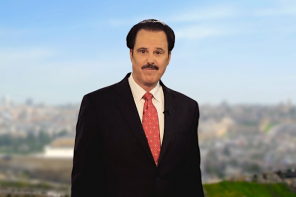I took a friend to the Leonardo da Vinci (“Fiumicino”) airport this morning, for a US-bound flight home. We nearly missed her plane.
I directed the taxi driver to the slot between Terminals B and C, where my flights have always departed from before now. But the checkout counter was nowhere to be found. It turns out that a brand new terminal, Terminal 5, has recently been opened at Fiumicino, an antiseptic new structure standing at some considerable remove from the other four terminals I knew. It is linked by shuttle bus, but they come infrequently, and the ride is a long one. Terminal 5 itself seemed empty, institutional, and almost eerily silent.
Terminal 5 is a product of the new post-9/11 realities. To be sure, many European airports have long segregated US-bound and Israeli flights, staging them all at one end of the airport where extra security can be provided, and where lines can be permitted to grow longer. That had long been true at the main Roman airport.
But a separate terminal, only for American Airlines, Continental, Delta, El-Al, United Airlines and US Airways? This is a new and very different kind of a symbol.
As I say, such institutional segregation was originally pragmatic, a reasonable response to the changed security environment of the post-9/11 world. But this separate terminal does not seem necessarily like a security advantage. On the one hand, it creates a separate target, and therefore a more attractive target for self-styled terrorists to hit. No amount of concrete road barriers or heavily-armored security personnel can change that fact.
And the symbolics of this simultaneous segregation and linkage are troubling. George W. Bush originally ran on the promise—yes, the promise—that under his leadership, the United States would get out of the world-policing and nation-building business, and that the state of Israel, with its notorious and continued sponsoring of illegal settlements in Palestinian territories, would no longer receive a blank check from the US.
Whether unwittingly or by cruel design, the September 11 attacks moved this president to reverse himself decisively on both fronts. The “war on terror” is by definition an interminable action in world-policing. We continue to engage in nation-building (if it is not laughable to call it this) in Iraq. And our inaction in the Middle East peace process has been nothing short of a moral embarrassment. We simply took a page from the Israeli anti-terror playbook (“hit them ten times as hard as they hit you”), and we now live in a world as permanently destabilized as the world most Israelis so grimly inhabit.
Setting aside flights bound for the United States or Israel made perfect sense. To set such flights aside at one end of a terminal made clear that this was a temporary measure suited to the current climate and easily reversible once the violence subsided. As those of us who study religion know all too well, symbolic realities can create realities to match. That symbolic segregation at Fiumicino is now real, and probably irreversible. It is also a potent symbol of what many Europeans have come to believe will be a perennial state of violent affairs, wherever the United States and/or Israel are concerned.




